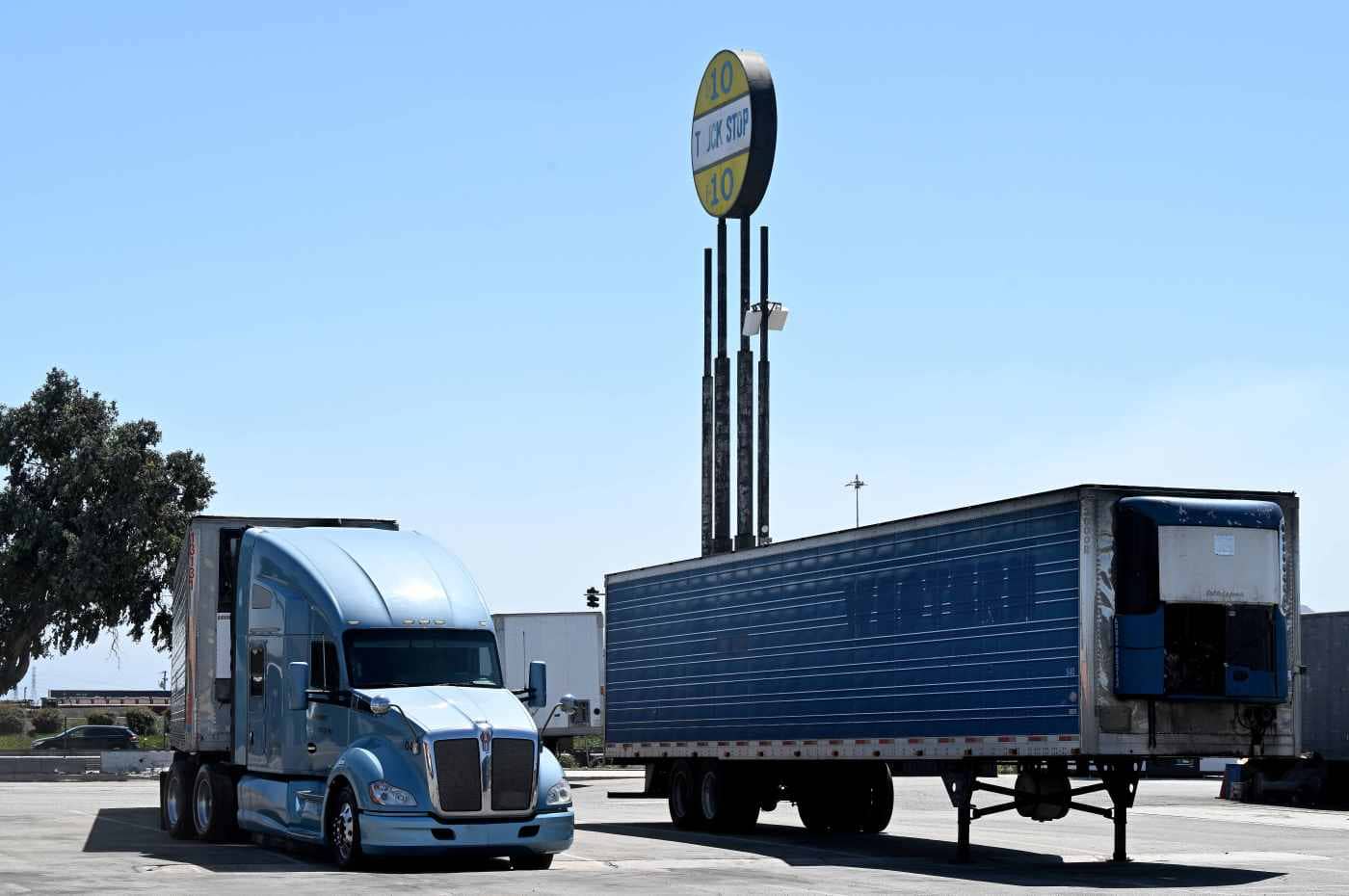Holding signs and candles, dozens of immigrant rights advocates and families gathered outside the U.S. Immigration and Customs Enforcement center in San Bernardino for a “Keep Families Together” vigil on Tuesday night.
The Nov. 26 event was organized by the Coalition for Humane Immigrant Rights (CHIRLA), as part of the L.A.-based nonprofit’s ongoing efforts to denounce planned anti-immigration measures and mass deportations promised by President-elect Donald Trump, leaders said.
Attendees at Tuesday’s vigil chanted “Si Se Puede!,” while calling for the shutdown of detention centers, like Adelanto in the High Desert.
The fight for immigrant rights is personal for Hesperia resident Irma Escobar, who came to the U.S. from Guatemala 28 years ago.
“I come from a mixed-status family. My husband and I are undocumented, and my children are citizens,” said 57-year-old Escobar in Spanish. “Despite living here for so many years and paying taxes… we were victims of a bad immigration process that caused my husband to be detained in 2012.”
Escobar said she worries for other families who will be separated if stronger immigration policies and pathways toward citizenship aren’t implemented. She finds great comfort in knowing she’s not alone in this fight, and that she has rights and resources available, even as an undocumented resident.
“Fear will not detain us,” she said. “I have lived more in this country than my country … I know this country more than my country. I belong here.”
Reverend Walter Contreras of Clergy and Laity United for Economic Justice led Tuesday’s crowd of around 40 people in a prayer for freedom, justice and family reunification.
“We must never forget that the way we treat our immigrants is the way we have respect with God,” Contreras said. “Tell me how you treat the immigrants, what you do with them, and I’ll tell you how much you love God.”
Speakers called for Congress to implement immediate relief and protections for the undocumented, while urging people to call their representatives and ask them to support legislation proposals such as HR 1511 and Senate Bill 2606. Both would renew legalization methods outlined in the Immigration Act of 1929, allowing lawful permanent resident status to long-term residents, including undocumented people. The bill would remove an entry cut-off date and allow for broader eligibility to those who have lived in the U.S. at least seven years.
Some experts say it’s unlikely Congress will pass any new protections before Trump takes office.
In 2021, nearly 6 million people in California were undocumented or lived in a household with an undocumented family member. Nearly 3 million residents across all Los Angeles, Orange, Riverside and San Bernardino counties were undocumented or lived in a household with an undocumented family member, with 1.9 million residing in Los Angeles in 2021, according to the California Immigrant Data Portal.
California also has the largest number of recipients of the Deferred Action for Childhood Arrivals (DACA) program, a policy established by the Barack Obama administration in 2012 to protect eligible undocumented immigrants who were brought to the U.S. as children.
Statewide and nationally, organizations have pushed back ahead of uncertain immigration policies under a second Trump presidency. Over the past few weeks since his re-election, CHIRLA has hosted multiple action days, rallies and press events, aiming to inform diverse immigrant communities of their currently-available rights. They called out public officials to enhance protections for the undocumented, and to “keep families together.”
CHIRLA organizers dropped banners at 12 different major freeways and streets across the region, affirming that “Immigrants Are Welcome Here” and “No to Mass Deportations.” The banners were seen in Los Angeles, Canoga Park, Panorama City, Bakersfield, Lancaster, San Bernardino, Corona and Hesperia.
Another candlelight vigil was held in downtown Los Angeles last Thursday, Nov. 21 at the Edward R. Roybal Center and Federal Building on Temple St.
One attendee, who identified herself as Ursula G. to protect her name, said she is living in fear and uncertainty of the future, as one of many immigrants potentially affected by Trump’s deportation plans.
“My husband was detained in this federal building for almost 8 months,” she said at the vigil in Spanish. After a long legal fight, she said, he was able to get out with help from CHIRLA’s legal department.
“I have personally witnessed what it is like to have your family separated, and the damage that it leaves behind,” Ursula said. “It’s inevitable that I feel this pain and fear.”
CHIRLA officials encouraged DACA recipients to ensure their work status permits are renewed and that green card holders should apply for naturalization as soon as possible. Undocumented families may have some statewide legal protections, but residents are encouraged to have a plan in place, including a caregiver affidavit for undocumented parents. The nonprofit provides legal representation, waivers and free consultations, officials said.
CHIRLA accepts walk-ins to its Los Angeles office on 2533 West 3rd St., Suite 101, from Monday to Friday during business hours. Anyone outside of the L.A. area can call (213) 201-3797. For more information, visit www.chirla.org.
Despite uncertainty of the future, Ursula G. reminded other immigrant families and allies that “fear should not paralyze us.”
“We’re not criminals, we’re hard-working people who flee our native countries due to our countries displacing us from where we live,” she said. “This is a very difficult situation … I’ve seen what my community has experienced, the separation of families, and it’s very difficult. But it hasn’t stopped me. I’m still here.”












